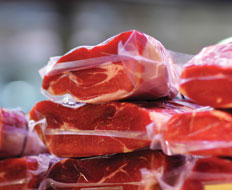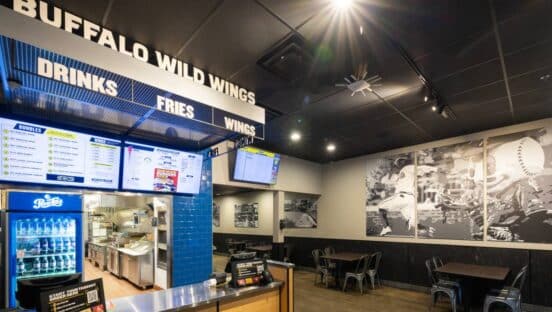Recent national news about stolen meat making its way into restaurants causes most quick-service operators to shake their heads. It’s hard to believe that operators would take such risks with the safety of their customers and their own business hanging in the balance. But misguided trust in questionable suppliers does happen.
“When you count on people who are looking for ways to curb costs, an opportunity might present itself,” says Michael Werner, vice president of design and operations at Leap Hospitality, a Kansas City, Missouri–based restaurant consultancy.
“It might put that operator in a situation where they have to make a choice on what is the right thing to do—take a short-term gain on some low-cost item that may have accidentally fallen off the back of a truck, or stick to what they know is the right thing to do by always sourcing their perishables from suppliers that they can go back and track where that product came from.”
While most operators would never entertain offers to purchase questionable products, there are still risks associated with the sources of the food supply, as any operator who’s dealt with an E. coli outbreak will attest to. Finding trustworthy suppliers is an ongoing job and is good for business.
“We’re constantly looking for new suppliers; even for all of our current products we’re evaluating different choices,” says Tom Laabs, senior director of purchasing for Cousins Submarines Inc., based in Menomonee Falls, Wisconsin.
“In the situation where we’re evaluating current products, we’re looking for a supplier that can match what we have. I like to have a safety net where if I need to go to another vendor, I can easily go to another one.”
Laabs says he relies mostly on referrals to scout new suppliers. From there, he’s looking for a financially sound company with a stellar track record for delivery and quality.
“I also like to look for companies that are vertically integrated,” Laabs says. “In particular, when it comes to meat suppliers, they need to control their product all the way through the process.”
Maryann Mazuran, director of purchasing for Teriyaki Experience, says there is a set of criteria she uses to evaluate a new supplier.
“I look at the number of years the supplier has been in business and if they are working with other quick-service restaurants,” she says. “I also get samples and internal feedback from our product development team before putting the product out to the market.”
Price is obviously another major consideration when looking for new suppliers. “[Over time,] if they get too comfortable with your business, I believe that the price creeps up higher than where it needs to be,” Laabs says.
In addition to watching the price of his staple food products from existing suppliers, Laabs may also have a need for new products. And there’s no shortage of suppliers knocking on his door.
“My phone rings off the hook all day,” Laabs says. “I proceed with caution or won’t even take the call if I know someone is in financial trouble, for example. You can’t take the chance of doing business with them, if they’re not going to be able to supply you the product you need.”
While Laabs receives many offers from suppliers, he says he knows the red flags to look out for.
“We get faxes and phone calls all the time that say things like, ‘I’ve got a deal on chicken breast.’ We will never deal with that type of situation,” Laabs says. “Most of the time there’s a reason they’ve got that product, even if they’re legitimate suppliers. It could be because another customer didn’t take the product for some reason. Last year, when tomatoes were sky high, there were a lot of trucks going missing full of tomatoes.”
Smaller operators are often the ones approached with such offers, Werner says, and they should be vigilant against fly-by-night suppliers.
“In the smaller independents, a vendor can knock on your back door and offer to sell you a product, whereas with a major [operator], those vendors don’t have access,” he says. “On the independent-store level and the smaller chains, that changes considerably. Any John Doe can knock on your back door and say, ‘Hey, I am selling this or that.’ It’s kind of buyer beware. It may be tempting, but you have got to know something is not right there.”
Mark Moreno, a restaurant coach based in Williamsburg, Virginia, also says a supplier calling with a deal is a telltale sign of a shady supplier.
“You should automatically deem them as not being trustworthy, because it’s just not how the business operates. This is the bottom line: Know who you’re dealing with, and if it’s too good to be true, it probably is,” Moreno says.
Larger operators are not immune to food safety issues, either. “What usually happens is, unfortunately, you have issues where E. coli strains and things like that made for an outbreak,” Moreno says.
Werner says the most important thing to look for in a food supplier, whether it’s a large supplier or a farmer co-op that provides organic or local products, is their ability to track where the food comes from and provide documentation to validate how their product has been handled.
They should also be able to document what chemicals or supplements they used through the growing process or processing of that individual product.
Any broadline distributor will be able to provide operators with documentation, Werner says. “It’s important to know not only where the product came from, but how it was handled,” he says. “Was it properly refrigerated? It may seem trivial, but I will make sure that it’s safe to give to guests.”
Laabs says the consequences of not being meticulous with proper documentation are too great to risk.
“It’s never worth it,” he says. “People that are dealing in those practices are usually not food people, so you don’t know how that product has been handled in that process.”
Moreno says to never open your back door to food suppliers. “Get a good supplier, and don’t worry about the back door,” he says, adding that operators should stay focused on the front of the house and customers.












